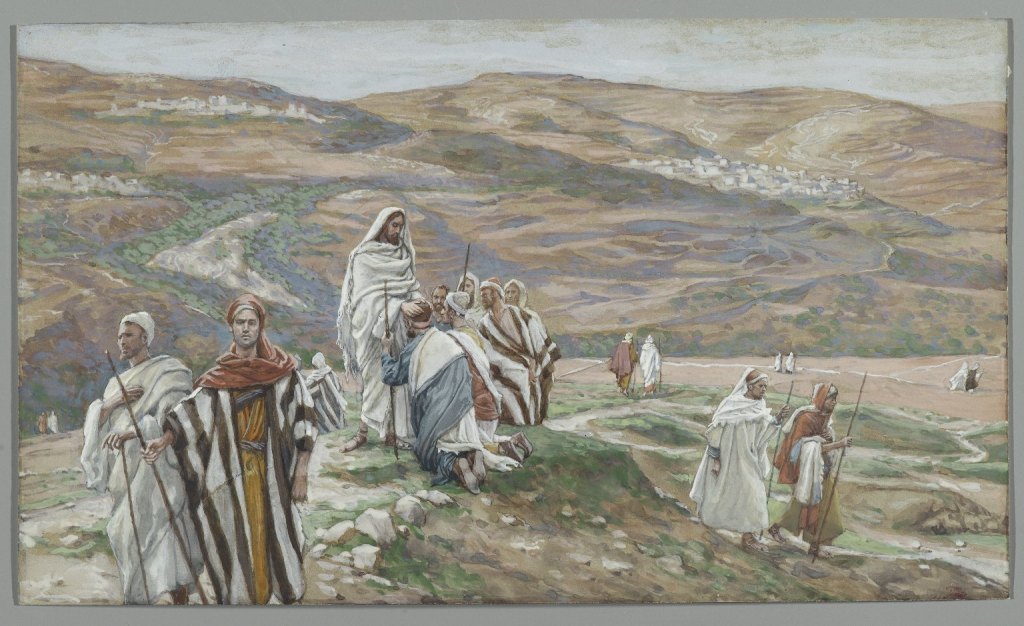For several weeks now we have had readings from the Old Testament prophets, which focus on what it means to be a prophet, and to speak God’s word to Israel. As we have already seen, confronting people with home truths often leads to rejection, and this is the case with Amos. He has been sent from the South to the Northern kingdom, to call the people back to God, exhorting them to stop exploiting the poor. The king and the priest tell Amos to go back to where he came from. They don’t want his sort turning up, and telling them off.They are haughty, dismissive, and proud. God has sent them a prophet, but they cannot and will not listen to what he says. It is sad, tragic even, that when faced with a call to repentance, all they can do is to reply with arrogance. It will lead to their downfall, and the destruction of Israel by the Assyrians.
Amos does not claim any special status, quite the opposite, he says:
‘I was no prophet, nor a prophet’s son, but I was a herdsman and a dresser of sycamore figs. But the Lord took me from following the flock, and the Lord said to me, “Go, prophesy to my people Israel.” Now therefore hear the word of the Lord.’ (Amos 7:14-16)
Amos is not a prophet by occupation, or apprenticeship. He has not been trained, and yet God uses him to call Israel to repentance. Ours then is a not a God who calls the qualified, but who qualifies those whom He calls. We may well feel unworthy, or unable to carry out what God wants, yet God works through us, not because we are capable, but because we rely on Him. Amos tells the uncomfortable truth to the priest, Amaziah, and to the king of Israel, and reminds them that their actions have consequences. Israel has fallen short, and will be judged. Amos is fulfilling the role of the prophet by calling people back to God, urging them to walk in His ways, so that they may have life, and have it to the full.
In today’s Gospel reading Jesus sends out His twelve disciples to proclaim the Good News. They are sent to call people to repentance, and to make the Kingdom a reality. They do this through the ministries of exorcism and healing. Just like the prophet Amos in our first reading, they call people to repentance, as the Church continues to do. Our turning towards God is a constant ongoing process, the work of a lifetime.
When we are planning a journey, even just a day trip: we prepare, we pack, we take things with us. But Jesus does not do this. He gives His disciples quite different instructions:
‘He charged them to take nothing for their journey except a staff—no bread, no bag, no money in their belts— but to wear sandals and not put on two tunics.’ (Mk 6:8-9)
Jesus’ teaching highlights the importance of the need to be dependant upon others, and especially God: not to trust in our own strength or planning, but to rely upon the generosity and help of others. To live in this way is a daunting prospect, and that is the point. It doesn’t make sense in human terms, but the Kingdom of God turns human values upside down. The Church is meant to travel light and be fleet of foot. The disciples also need to prepared to face rejection:
“And if any place will not receive you and they will not listen to you, when you leave, shake off the dust that is on your feet as a testimony against them.” (Mk 6:11)
The offer of the Kingdom is freely made, and can be rejected. God does not compel us to believe, He invites us into a relationship. We are free to accept or reject, but both actions have consequences. At a symbolic level, this verse reminds Christians to leave behind all anger, bitterness, and judgement, and instead to be a community of love and joy.
So they went out and proclaimed that people should repent. And they cast out many demons and anointed with oil many who were sick and healed them. (Mk 6:12-13)
We see the reality of God’s kingdom in its proclamation and the reality of healing and freedom which it promises. The disciples continue Jesus’ work and mission, giving us a template for the Church, which serves to proclaim, to heal, and to nourish God’s people. We too are heralds of the Kingdom of God, which is still an unfolding reality in the world around us. It is a work in progress until Christ comes again and renews all things in Himself. In the meantime we can rest secure that we are a part of God’s plan for the world. This is a plan of love, which sees Jesus die upon the Cross for our sins, and rise again to give us the hope of Heaven. The redemption of the world in and through Jesus Christ is a reality. This is the hope which underpins Paul’s message, both to the Church in Ephesus, and to us today.
God loves us, has a wonderful plan for us. However, in accepting His invitation, we should be aware that there are risks involved, and things may not always be comfortable or easy. It will be a challenge. And yet, God provides all that we could ever want or need with regard to faith, hope, and love. If we trust Him and rely upon Him alone then we too can bear witness so that the world will come to believe in God the Father, God the Son, and God the Holy Spirit. To whom be ascribed, as is most right and just, all might, majesty, glory, dominion, and power, now and forever. Amen.

No comments:
Post a Comment